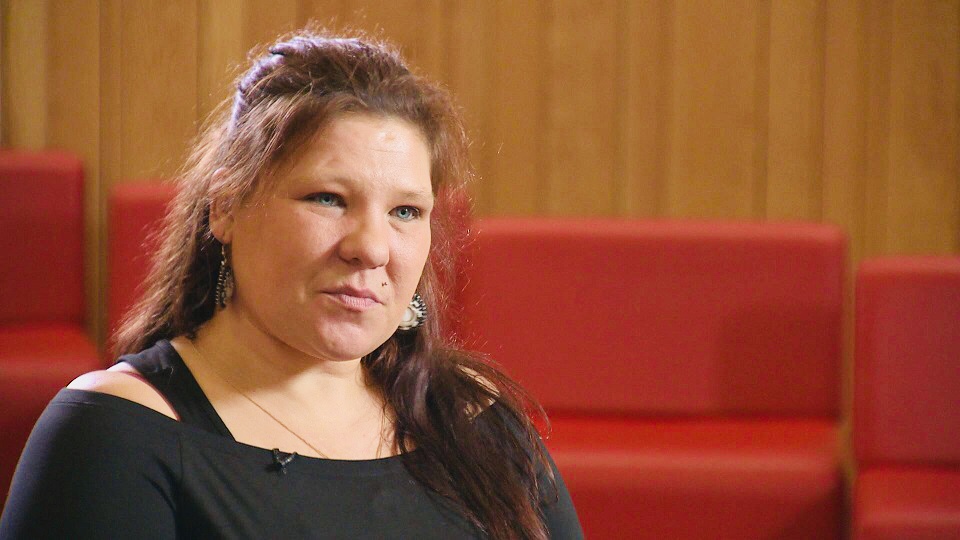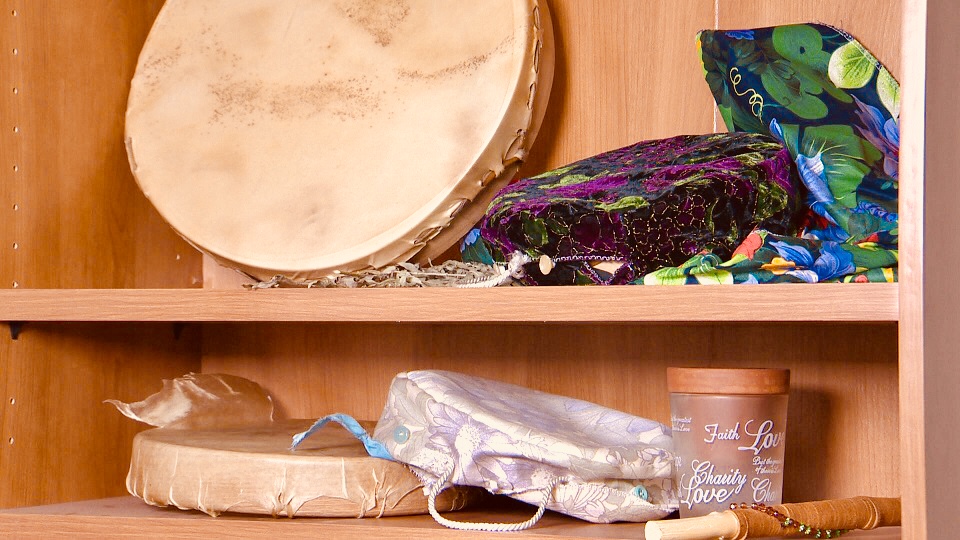This is part four of a series of stories about child sexual exploitation. Here is part one, two and three.

Before sending her children off to school, Carrie Blaydon always asks them, “What is knowledge?”
Their answer is consistent: “Power.”
Blaydon, a survivor of child sexual exploitation, wants to instill this message in her children early because knowledge was the key to gaining power back in her life as an adult.
“I learned about neglect and abuse and even the abuse that happened to me,” Blaydon said.
“It opened my eyes more to the reasons behind addiction, the reasons behind child apprehension, exploitation and… residential schools.”
The abuse Blaydon endured at a young age led to addictions, working in the sex trade, and eventually, her children in the care of Child Family Services (CFS) run by the government of Manitoba.
She remembers being out on the streets and seeing younger girls entering the sex trade. This, she said, broke her heart.
“I wanted to get out, for not only my children but for all of our future generations,” Blaydon said.
The biggest factor for Blaydon leaving her addictions and life of exploitation behind was thinking her children would be in permanent government care and separated from each other, she said.
After focusing on treatment for one year, Blaydon’s children were returned to her care in 2015.
WATCH: Here’s the classroom giving survivors like Blaydon a new lens on life

Blaydon is a graduate of Ndinawe‘s Child and Youth Care (CYC) worker training program in Winnipeg, which helps survivors of sexual exploitation reintegrate back into the community so they can help at-risk children. Child sexual exploitation is the act of coercing someone under the age of 18 into a sexual act without their consent in exchange for money, drugs, shelter, food, protection or other basic necessities.
“Most of our students grew up in care,” Susan Berthiaume, Ndinawe’s CYC program coordinator, said.
“A lot of our students have somewhere between 20 and 60 foster placements in their childhood histories and justice system involvement.”
Blaydon said the program helped her learn what’s happening with CFS and “how many Indigenous children are in CFS. You look back to colonization and the impacts today that are still happening.”

Get weekly health news
There are currently more than 10,700 children in care in Manitoba, about 90 percent are Indigenous.
LISTEN: Survivor of exploitation shares message of hope for others

The CYC program was designed to get children off the streets by giving survivors of child sexual exploitation the skills necessary to assess, intervene, and come up with strategies to enhance the quality of life for children and families they encounter.
Back in 2002, the Manitoba strategy “Responding to Children and Youth at Risk of, or Survivors of, Sexual Exploitation” was launched.
“People around the round tables were asked repeatedly what kind of intervention would have made a difference in your childhood, and overwhelmingly, the responses were that not too many people had a worker that could relate, or understand, the realities of what they’ve been through,” Berthiaume said.
Ndinawe’s CYC program was launched in 2007. The full-time, 10-month certificate offers the Red River College (RRC) accredited curriculum in the child and youth care field to participants who intend to work in child welfare.
“The goal of our program is to actually integrate people with lived experience back into the child welfare system so they can make a real impact because of their lived experience,” Berthiaume said.
PHOTO GALLERY: Look inside the classroom changing lives
“They’re basically learning about their own lives and so we need to be there to help them with that.”

The program is funded by the Manitoba government, the Centre for Aboriginal Human Resource Development, as well as a number of private foundations and smaller corporations. This support helps students take part without having to pay tuition.
“Their costs are covered, the program allows for our students to be on social assistance as well, receive a small additional training allowance that allows them bus passes,” Berthiaume said.
Anyone interested in applying should call 204-582-1978 and leave a message, Berthiaume said. Students of any age can take part in the program.
“Our youngest student this year is in their early 20s, and our oldest student this year is in her 60s.”
- 92 people graduate with a college certificate
- 19 people go on to graduate with a college diploma
- 2 people from the program graduate from university
“For a mom with kids to be doing her homework, together with her children at the dinner table, that changes a family’s trajectory.”
Positive domino effect
For society, the estimated cost per exploited person is more than $446,000 according to a report. The annual operating cost of Ndinawe’s CYC program is slightly higher than that estimate, for one exploited person.
“If we break it down, and look at how one child and youth care worker in this program can prevent a child from becoming exploited, or can help an exploited child out of that situation, we’re apt to probably save money in the justice system, in child welfare, in education, so that’s huge.”

“It gives you not only motivation, but it gives you your power back… knowing that you’re going to go into [the] community and make a difference in somebody else’s life, or some other child’s life, you know that you can be a mentor because of the experience you have gone through.”
“I really think that children are key, and our future depends on them.”
If you need help right now call 911, or Kids Help Phone 1-800-668-6868, an anonymous and confidential counselling service. If you’re in Manitoba, text “connect” to 686868 to be connected with a crisis responder.The Human Trafficking Hotline (toll-free) 1-844-333-2211 provides 24/7 support and counselling to anyone being trafficked or affected by trafficking.If you know of a child who is being harmed or neglected, call the 24-hour emergency child welfare number at 1-866-345-9241Visit the Department of Justice’s Victim Services Directory or find your local Canadian Mental Health Association office to find support services near you.Contact the Canadian Centre for Child Protection for help finding the proper support services in your area.The SAFoundation supports women and children who have been affected by human trafficking and exploitation. Call them toll free at 1-866-876-6SAF.















Comments
Want to discuss? Please read our Commenting Policy first.